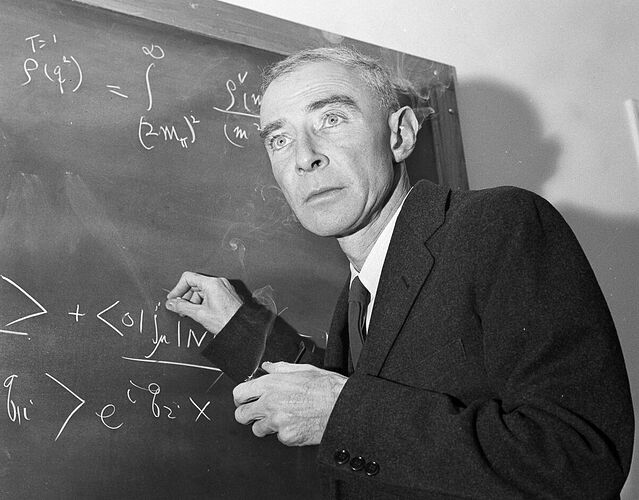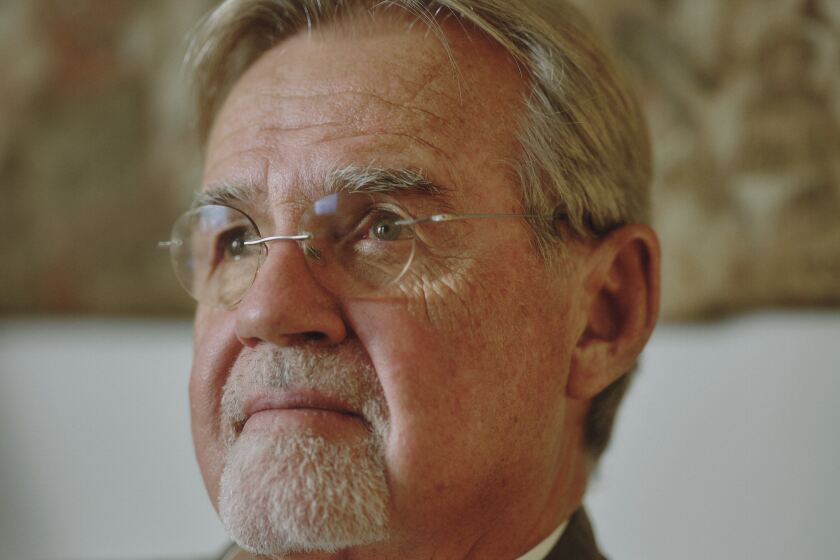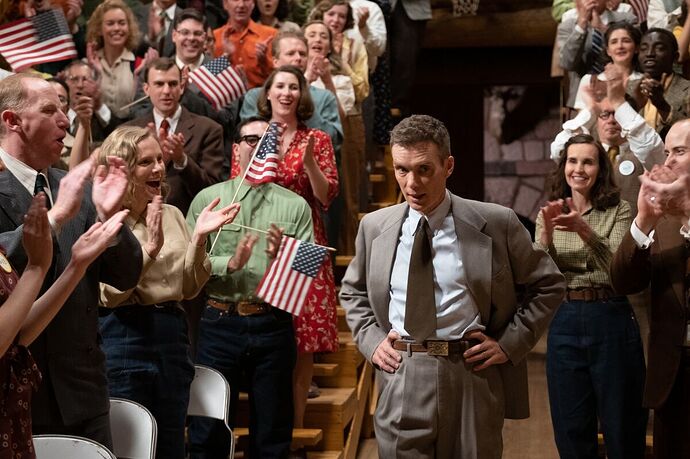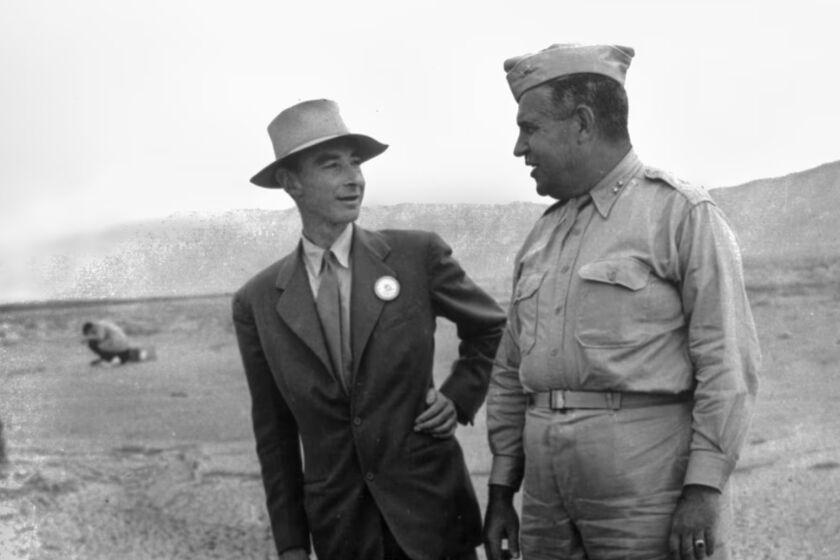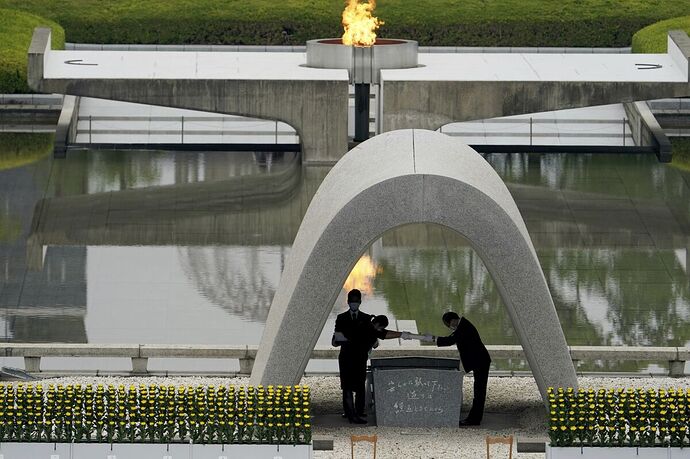The Florida version would end in the electric chair.
Juror #3 stands his ground and shoots juror #8. They all agree to hide the body in the closet.
We were watching an old cartoon where Ludwig Von Drake got shot in the face with a cannon. My brother mentioned that such a thing couldn’t be done today.
I had to them point out that this sort of thing happened at least twice in every episode of Phineas and Ferb, and probably happens in tons of other current cartoons.
It was a play before it was a movie. If performed today the play is normally called 12 Angry Jurors and some of the roles are played by women/girls (often done in high schools).
The 1957 version with Henry Fonda.
Did not realize that there was one made “recently”.
ifyp
Apparently, “Oppenheimer” cuz didn’t include every person on Earth’s story.
spoiled for size, in case one needs a subscription:
Summary
On Aug. 6, 1945, the United States dropped an atomic bomb on Hiroshima, Japan, instantly killing thousands of civilians and devastating thousands more. The destruction was immense. The city was leveled for miles and the survivors suffered radiation sickness, life-changing injuries and unshakable trauma. Three days later, the U.S. dropped a second bomb on Nagasaki. It is now estimated that more than 200,000 people died in all.
None of this is portrayed in “Oppenheimer,” Christopher Nolan’s blockbuster about the creation of the bomb.
The film, told through the lens of American theoretical physicist J. Robert Oppenheimer (Cillian Murphy), has earned rave reviews and box-office success. But for some observers, the movie, based on Kai Bird and Martin J. Sherwin’s 2005 biography “American Prometheus,” centers Oppenheimer’s perspective without acknowledging the human toll of his technology.
It never shows the bombing of Hiroshima or Nagasaki, for instance, or the aftermath in either city. The number of casualties is mentioned once in passing. Additionally, other than one throwaway line, there is no reference to the effect atomic testing had on Native Americans in New Mexico, known as “downwinders.”
ADVERTISEMENT
Though critics acknowledge Nolan’s fidelity to Oppenheimer’s own perspective, they point to the contrasting lack of representation of the Japanese loss of life as one of the film’s signal failures.
”You see Oppenheimer as a personally and politically traumatized figure,” says Naoko Wake, professor of history at Michigan State University and author of “American Survivors: Trans-Pacific Memories of Hiroshima and Nagasaki.” “But it leaves out so much. There are missed opportunities in terms of how Japanese survivors’ experiences were not at all featured in the film.”
Christopher Nolan goes deep on ‘Oppenheimer,’ his most ‘extreme’ film to date
July 11, 2023
Paul Ham, the author of “Hiroshima Nagasaki,” says “Oppenheimer” honors the spirit of “American Prometheus,” but in doing so, it excludes other viewpoints.
“Nolan makes very clear that this is about the world through Oppenheimer’s eyes,” Ham says. “In other words, we can’t help but have a completely subjective view of these events. So we get a movie where the Japanese people are relegated to basically a historical footnote. As a reflection of Oppenheimer’s mind, the film cannot help but be morally half-formed.”
Representatives for Nolan told The Times he was unavailable to comment on this story.
Brandon Shimoda, a Japanese American poet, writer and professor who curates the online Hiroshima Library, a collection of resources on the atomic bomb, notes that audience members may have differing perceptions of “Oppenheimer” depending on their identity.
“I have spoken to many people, especially in the Japanese American community, who have expressed tremendous discomfort in the mere idea of the movie, and grave uncertainty, at least, about whether or not they would put themselves through it,” Shimoda says. “In that way, the movie, even before it came out, was already doing the work of re-traumatization. White audiences have not, for the most part, had to make these kinds of calculations. They instead have the luxury of being entertained.”
Shimoda adds that the scale of “Oppenheimer” is significant because for many Americans, it will be “their first, maybe only” exposure to the history of the Manhattan Project, the Trinity test and its aftermath.
“It will, in that way, create a limit on public consciousness and concern,” Shimoda says. “‘Oppenheimer’ reinforces, in the guise of false nuance, the tired and ultimately distracting debate of whether or not the mass murder and the incineration of over 100,000 civilians in an instant was justified.”
The real-life J. Robert Oppenheimer, pictured at his study in Princeton University’s Institute for Advanced Study in 1957.
(John Rooney / Associated Press)
“I know how it ends,” says Kathleen Burkinshaw, whose Japanese mother, Toshiko Ishikawa Hilliker, survived the bombing of Hiroshima. (Burkinshaw wrote a young-adult novel, “The Last Cherry Blossom,” based on her mother’s experiences.) “It kills members of my family. I know I couldn’t sit through that, especially now that I know they don’t even talk about or show anything about the Hiroshima or Nagasaki victims, or even the Trinity victims.”
Ryo Morimoto, assistant professor of anthropology at Princeton says he wasn’t surprised by the film’s portrayal of events.
“I wasn’t expecting any type of representation of the Japanese side of the story because [Oppenheimer] wasn’t the kind of figure who … had a connection to Japan,” says Morimoto, who also facilitates Nuclear Princeton, an undergraduate program that highlights the under-acknowledged effects of the university’s nuclear science on Native Americans.
In New Mexico, testing at the Trinity site left a devastating mark on local people. The effects, which include widespread cancers and subsequent deaths, have yet to be fully acknowledged by the U.S. government. The lack of Native American representation in “Oppenheimer,” which includes a lengthy sequence in which the Los Alamos scientists perform the Trinity test, has stirred a parallel backlash.
The closest the film comes to depicting the effects of atomic bombs on civilians comes after the attacks on Hiroshima and Nagasaki, as Oppenheimer gives a speech to a cheering crowd of scientists at Los Alamos. But those harmed are not Japanese: Instead, momentarily overtaken by guilt, he imagines the bomb devastating his colleagues, with particular focus on a young white woman. Nolan cast his own daughter, Flora, in the role.
Oppenheimer’s big-screen odyssey: The man, the book and the film’s 50-year journey
July 18, 2023
To a number of the film’s critics, the scene does not make up for the omission of the Japanese perspective.
“The only vision of the victims of the bomb were Americans, who were dying and their skin was peeling off and their bodies were disappearing in front of us,” says Ham. “But that was in Oppenheimer’s mind. When he said to Truman, ‘I’ve got blood on my hands,’ he was thinking about future victims of nuclear Armageddon. He wasn’t thinking about the Japanese people.”
“If they were to talk about [the effect of bombings],” Morimoto says, “they should have made an effort to show the actual image when they had an opportunity.”
The scene also lacks scientific accuracy, according to experts.
“It’s a ball of fire hotter than the sun,” Carol Turner, co-chair of the London Region Campaign for Nuclear Disarmament, says of an atomic blast. The version in “Oppenheimer” is “an ethereal, artistic and highly sanitized glimpse of the face of a single bomb victim. It’s very far from the reality of what happens.” (Turner points to an educational video, “What If We Nuke a City?,” for reference.)
A scene in which J. Robert Oppenheimer imagines the effects of an atomic blast on an auditorium full of Los Alamos scientists is among those singled out by the film’s critics.
(Melinda Sue Gordon / Universal Pictures)
In another scene, set several weeks after the dropping of the bombs, Oppenheimer and his colleagues watch a slideshow of images of the destruction. The audience never sees what’s being projected and Oppenheimer himself looks away from it, flinching.
“The scene encourages us as the audience to look away as well,” Wake says. “That’s a lack of responsibility to me because without understanding what happened, you wouldn’t have empathy. You wouldn’t have an opening for conversation or reconciliation. You have to see it first.”
After attending a press screening of the film ahead of its release, Li Lai, founder and editor in chief of Mediaversity Reviews, took to X (formerly known as Twitter) to share her reaction.
“People seem to love ‘Oppenheimer’ but I’ll just say it,” she posted. “I was uncomfy watching yet another movie about tortured white male genius when the victims of the atrocities glossed over by the script — Japanese people, interned Japanese Americans, and Native Americans — had no voice.”
More than 37 million people have since viewed the tweet, and the comments range from nuanced agreement to aggressive trolling. Lai says she simply wanted to point out a glaring imbalance.
“I don’t think that every single movie has to be everything,” says Lai, who is Taiwanese American. “There’s a really obvious bias in Hollywood to fund perspectives from white men over and over again. If ‘Oppenheimer’ existed just the way it is, that’s fine by me, but what I want is there to be some interest in balancing that perspective.”
Column: ‘Oppenheimer’ is a great movie, but it commits these historical blunders
July 31, 2023
Ham feels that “Oppenheimer” perpetuates the idea that the atomic bombs were an American victory, rather than an act of violence.
“America and Hollywood are great at producing films about victims of genocide and war crimes, so long as the perpetrator is the bad guy, like Germany or Japan,” Ham says. “How many films are there about the Holocaust? But no one dares touch a story where the Americans were the perpetrators of an atrocity that killed 100,000 civilians immediately, including 8,500 schoolchildren moments after their parents had dropped them to school.”
Despite speculation to the contrary, “Oppenheimer” has not been banned in Japan. Universal Pictures has yet to date its release there, but insiders expect it’s only a matter of time.
Japan is “almost always” the last cinematic outpost for Hollywood blockbusters, explains Jeff Bock, a senior media analyst.
“Part of that is due to the healthy domestic box office of Japan,” Bock says. “I wouldn’t say it’s unusual for ‘Oppenheimer’ to open much later in Japan than the rest of the world, but I do wonder how much success it will have, considering the subject matter.”
Morimoto, who regularly reads Japanese newspapers, hasn’t noticed much coverage of the film in the media there. He points out that Japanese audiences are “constantly being exposed to the conversation about atomic bombs.”
A ceremony marks the 75th anniversary of the atomic bombing of Hiroshima, Japan, at the Hiroshima Peace Memorial Park in 2020.
(Associated Press)
Caitlin Stronell, editor of Nuke Info Tokyo, the Citizens’ Nuclear Information Center’s English-language online magazine, anticipates curiosity from many in Japan.
“I think there is a lot of interest in Oppenheimer as a scientist in the Japanese anti-nuclear movement, and I’m sure that many, especially the older generation, would be interested in seeing the movie when it finally makes it to Japan,” Stronell says.
Representatives for the Hiroshima Peace Memorial Museum and the Nagasaki Atomic Bomb Museum both declined to comment.
Though Japanese audiences have yet to see “Oppenheimer,” the meme-fication of the film, alongside “Barbie,” hasn’t landed there in the same way. Earlier this week, #NoBarbenheimer trended in Japan in response to the official Warner Bros. account for “Barbie” posting memes that use the atomic bomb seemingly as a joke. The backlash was swift and some users replied with images of the bombing victims as a contextual reminder.
Warner Bros. Japan has since apologized, saying the posts “lack consideration.” But the memes are emblematic of a disconnect between the reality of what happened to the Japanese people in Hiroshima and Nagasaki and many American viewers’ perception of the “Barbenheimer” phenomenon as entertainment.
“It scares me a little knowing that maybe they don’t understand it, because they don’t have a connection to it,” Burkinshaw says of the memes. “Trying to connect with how Oppenheimer felt — that has nothing to do with today. Knowing that these weapons are out there and they can be used and next time it could be a big city in the United States, would people then want to have a picture of a mushroom cloud on social media?”
For those interested in alternative accounts of the atomic bomb, Wake suggests beginning with first-hand oral history records of survivors.
“I would hope that many people would at least be moved by ‘Oppenheimer’ to seek out what other aspects might have been there,” Wake says.
Last month, Nolan told The Times, “You don’t know what you’ve done until an audience sees it.” As “Oppenheimer” continues to both captivate and divide filmgoers — including those who feel their history has been erased — he has much to hear.
Fun note: the movie is not about the bombings. No one’s story is getting erased (well, except for the Latina Barbie’s excluded from that other movie).
Fun note #2: there will be a shit-ton of documentaries coming up in the next two weeks about the atomic Bomb droppings. They might also be available streaming. So, stop whining about wanting every movie to be about what you want it to be about. Don’t go. Steal it when it streams. Whatev’s. The whining makes you look like a whiner, and I’ll stop listening. Wait, I think I already did.
Just read and re-read Hersey’s Hiroshima. It only takes so long to read that
Feelings are not that important. What’s important is that for decades people have harassed and micro aggressed people who aren’t similar enough to them, to try and get rid of them. and hidden behind people who think it doesn’t matter. After all, it’s just feelings. It’s easy enough for the harasser to say, Well, my intent was humorous… they’re just being sensitive… no, my jokes were just jokes, I have no idea why they feel unwelcome or why it’s hard for them to get up each day and go to work and face me. I should be free to be as insensitive as I feel like and others should bear the burden of it.
This is certainly true, some people love to be jerks and they love to maintain plausible deniability.
Given all the boxes that films already have to check, I don’t want to set a precedent that every film must give voice to the grievances of every group that is tangentially related to its story.
This was about saying the n word. I agree with you that films don’t need to give voice to every group related to their story. (for an eloquent defense of this, read the afterword of Ray Bradbury’s Fahrenheit 451) But I don’t think intentions are the only thing that matter in an interaction. If we were all mind readers and could be confident we knew everyone’s intentions, maybe. But as we’re not…
Revenge of the nerds was basically r/incels.
Which is also no longer allowed since we found out how real life nerds take revenge.
Part of the trouble with n-word jokes is that racists don’t typically use the n-word anymore, so they stop being funny.
Really a problem with any political humor is it only works at a very specific time and place.

